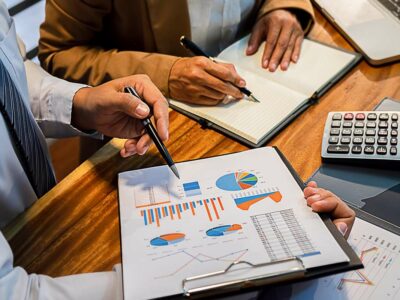
Making Tax Digital (MTD) is a government initiative that requires businesses to keep digital records and submit their VAT returns online. If your turnover is above the VAT threshold, you will need to comply with MTD for VAT. To calculate your Class 2 NICs, you can use the HMRC’s online Bookstime calculator. If you pay them annually, you can do so as part of your self-assessment tax return. We enjoy talking to business owners and self-employed professionals who are looking to get the most out of their accountant. You can visit us at any of our 409 locations, meet with us online through video call software, or talk to us by telephone.

Understanding Bookkeeping for Sole Traders
- Avoiding human error and ensuring accuracy in your financial records is critical.
- Accurate record-keeping is crucial for managing your sole trader accounts effectively.
- One of the most important aspects of effective sole trader bookkeeping is keeping track of receipts and invoices.
- Many customers may find it easier to prepare accounts to 31 March or 5 April from 2024 onwards.
- With single-entry bookkeeping, you record each transaction as a single entry – this method is similar to balancing a checkbook.
Keeping track of your income and expenses allows you to know how much money is coming in and going out, which helps you make informed decisions about pricing, budgeting, and future investments. As a sole trader it is important to understand your tax obligations, record and track all tax payments made throughout the year, and file accurate and timely tax returns. Failure to what are retained earnings do so can result in serious consequences such as fines, interest charges, or even prosecution. Seek advice if needed and take record keeping seriously in order to ensure that you meet all of your obligations in full.

Accounting obligations for IEs covered by the micro-BNC scheme
While efforts have been made to provide accurate information as of the post date, our posts should not be considered as financial advice. Please always consult a professional before making decisions that could affect your financial wellbeing. Explore more of the UWM blog to truly master your self-employed tax and accounting obligations. With the right tools and practices, you’re well on your way to becoming a wizard at preparing your financial statements. Your laptop (capital) is a long-term asset while your internet bill (revenue) is a day-to-day expense. Sure, it involves numbers and records, but break it down into bite-sized chunks, and it’s like putting together a jigsaw puzzle — one that can tell you a story about where your business is heading.
Regularly reviewing financial statements
- They form the backbone of your profit and loss statements and are a focal point during ATO audits.
- For example, a discrepancy could be due to a check that hasn’t cleared yet or a deposit that was made after the end of the statement period.
- Let’s jump into the essentials of accounting for sole traders and turn what might seem like a chore into your business superpower.
- Using a scanning tool like Scanner Pro to automatically render paperwork into PDF documents and name them consistently so they’re ready to attach to the matching transaction, can save you plenty of time too.
- It also makes it easier to identify potential issues such as write off bad debt or spot opportunities where you can improve cash flow.
Microsoft Dynamics GP has a management solution that offers robust financial capabilities alongside CRM, reporting, payroll, operations, and project accounting tools. Create ledger accounts to classify transactions into pre-defined categories per your business model and reporting needs. Classify every business expense or revenue event into accounts like office supplies, equipment, sales of products, consulting services fees, sole trader accounting etc.

Accounting software like QuickBooks, Xero, or FreshBooks is recommended for sole traders. They help in efficiently tracking income and expenses, simplifying the preparation of financial statements and tax returns. As a sole trader, you do not have to open a separate bank account if you split your personal income and expenses to the business’s transactions. But, it is recommended that you open a business bank account; most major banks offer business banking. This will help you separate your personal and business finances for accounting purposes, making tracking expenses and income more straightforward. From April , instead of filing an annual self-assessment, you’ll need to use MTD compliant accounting software to keep track of your financial records and submit quarterly income tax updates to HMRC.
- As a sole trader, you are legally responsible for maintaining accurate financial records and submitting tax returns on time.
- High priority issues that are escalated by members of the Issues Overview Group are moved to the Issues Overview Group escalated issues board for management.
- Other businesses may choose to shorten or lengthen their accounting period to 31 March or 5 April 2024 to make completing future tax returns easier.
- It’s essentially an unincorporated business owned and operated by a single individual.
- If a sole trader is struggling with bad debt from clients who have not paid their bills, seeking professional assistance may also be helpful in finding ways to recover these funds.
